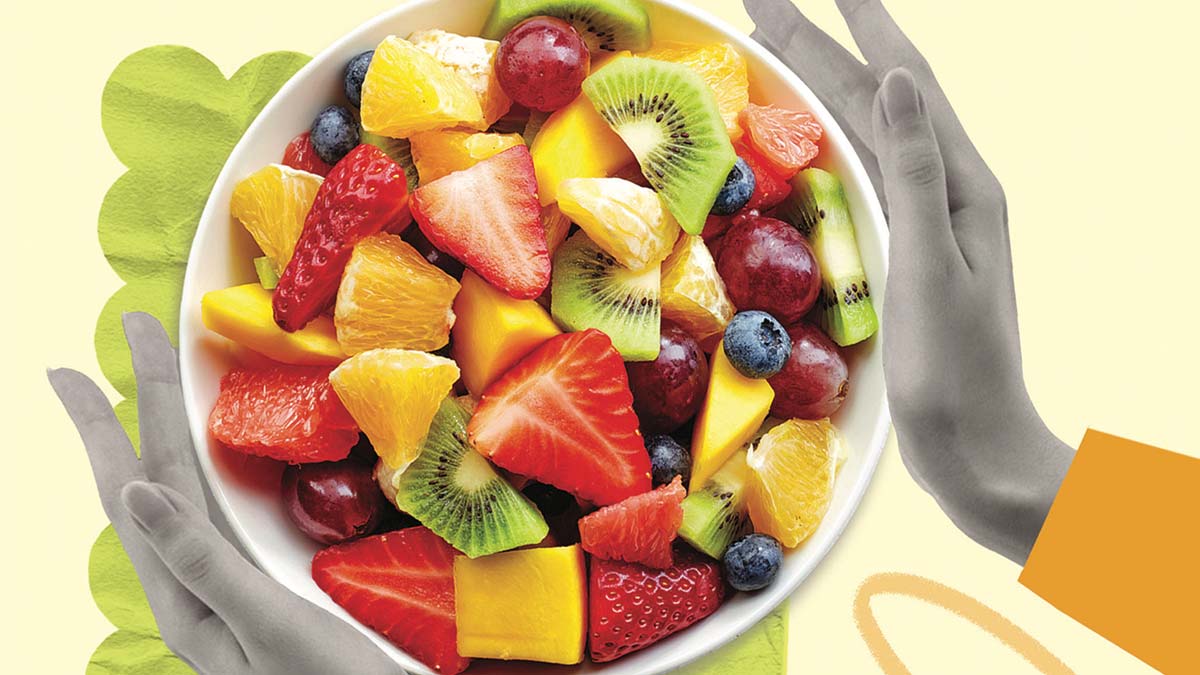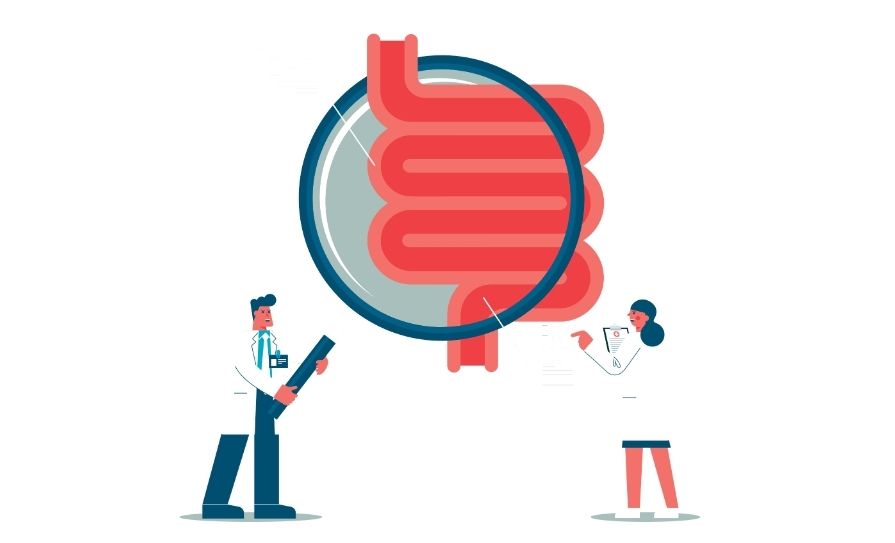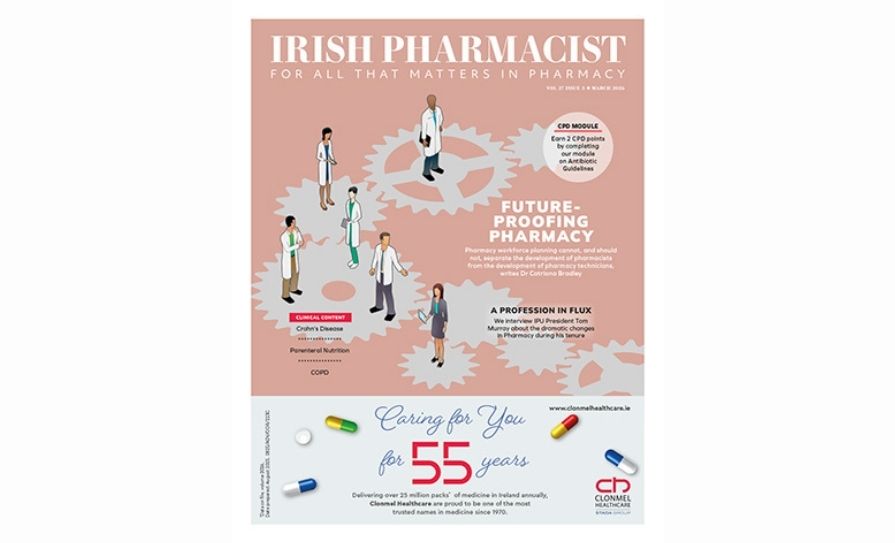Ireland like other developed countries, faces several common nutritional challenges. Nutrition plays a vital role in overall health, and addressing these problems is crucial to ensure the wellbeing of the population. This article will try to shed light on some of the most prevalent nutritional problems encountered and how some simple food choices and habit changes relating to food can help prevent them.
The top nutrition-related health problems
1. Obesity
Obesity has become a major public health concern in Ireland over the past few decades. A sedentary lifestyle, unhealthy dietary habits, and easy access to high- calorie, processed foods contribute to the rising prevalence of obesity. This condition increases the risk of chronic diseases such as heart disease, diabetes, and certain cancers.
2. Vitamin D deficiency
Ireland’s location and climate contribute to significant vitamin D deficiency in the population. With limited sunlight during the winter months and low dietary intake of vitamin D-rich foods such as oily fish and fortified dairy products, many individuals fail to meet their vitamin D requirements. High-risk groups include infants, pregnant women, the elderly, and those with limited sun exposure.
3. Iron deficiency anaemia
Iron deficiency anaemia is a common nutritional problem, particularly among children, women of childbearing age,
and vegetarians. Insufficient intake of iron-rich foods, poor iron absorption, and blood loss due to menstruation or other causes contribute to this problem.
Men on average need 8.7mg of iron a day, while women on average need 14.8mg a day. Many get enough iron from their diet; small amounts of iron are lost from our body in urine, faeces, and dead skin cells. Much more is lost if blood is lost, which is why women who have heavy periods are more at risk of anaemia.
How to ensure you get enough iron in your diet?
Meats, especially liver, followed by beef are the best sources of iron. Most seafood, especially oysters, are also good sources of iron. Vegetables and fruit with the highest levels of iron are sundried tomatoes (9mg per 100g), dried apricots (6mg per 100g), fresh parsley (6mg per 100g), cooked spinach (3.5mg per 100g), coconut (3.3mg per 100g), olives (3.3mg per 100g), and raisons (3mg per 100g).
Vitamin C helps the body to absorb iron. Thus, eating fruits or vegetables high in vitamin C in addition to those high in iron helps make the iron foods more effective. Good sources of vitamin C include peppers, sweet potatoes, oranges, and kiwi fruit. Some drinks reduce the absorption of iron from the digestive tract. Phosphates found in carbonated soft drinks can decrease iron absorption. Tea and coffee contain polyphenols which bind to iron and make it harder to absorb. People prone to iron deficiency should cut down on fizzy drinks, tea, and coffee to increase their iron levels. It is very unlikely to overdose on iron from diet alone. Normally, the only cases of iron overdose are due to the use of iron supplements.
4. Low fruit and vegetable intake
Despite the numerous health benefits associated with fruit and vegetable consumption, it remains a challenge for many people in Ireland to meet the recommended intake. Factors such as cost, availability, and personal food preferences can contribute to this problem. Solutions include a varied and balanced diet, use of local and seasonal produce, and practical tips for incorporating fruits and vegetables into daily meals.
5. Excessive salt intake
High salt consumption is prevalent in Ireland and is associated with an increased risk of hypertension and cardiovascular diseases. Many Irish individuals unknowingly consume excess salt through processed foods, takeaways, and restaurant meals. Solutions include reading food labels, choosing low-sodium alternatives, cooking meals from scratch, and raising awareness about the health risks associated with excessive salt intake.
Insufficient fibre intake can lead to constipation, diverticular disease, and an increased risk
of chronic diseases like colorectal cancer
6. Inadequate fibre intake
Low fibre intake is a common problem in Ireland, resulting from a high consumption of refined carbohydrates and processed foods. Insufficient fibre intake can lead to constipation, diverticular disease, and an increased risk of chronic diseases like colorectal cancer. Healthcare providers should encourage the consumption of whole grains, fruits, vegetables, legumes, and nuts to increase fibre intake. Additionally, they can provide practical tips to help individuals incorporate more fibre-rich foods into their diet.
7. Malnutrition
Malnutrition can occur due to inadequate intake of essential nutrients or imbalanced diets. It affects people of all ages, with particular concern for older adults and vulnerable groups such as children and those on low incomes.
8. Cardiovascular disease
Poor nutrition, including diets high in saturated fats, salt, and sugar, can contribute to the development of cardiovascular diseases such as high blood pressure, heart disease, and stroke.
9. Type 2 diabetes
The incidence of type 2 diabetes is on the rise in Ireland, partly due to unhealthy eating habits and sedentary lifestyles. Poor nutrition and excessive consumption of sugary foods and drinks play a significant role in the development of this condition.
10. Food allergies and intolerances
Many people in Ireland suffer from food allergies or intolerances, including coeliac disease, lactose intolerance, and nut allergies. These conditions require careful dietary management to avoid triggering symptoms or allergic reactions.
11. Dental problems
Frequent consumption of sugary foods and beverages can lead to tooth decay, cavities, and gum diseases. Poor oral health can have a significant impact on overall wellbeing.
12. Gastrointestinal issues
Unhealthy food choices such as high- fat and processed foods, can contribute to gastrointestinal problems like constipation, bloating, and irritable bowel syndrome (IBS).
13. Pernicious anaemia
I discussed Iron deficiency anaemia earlier, but there are some other nutritional reasons for a deficiency in red blood cells. For example, folic acid and vitamin B12 are also needed to produce red blood cells, so insufficient B12 and folic acid in the diet can lead to a drop in red blood cells. Anaemia caused by vitamin B12 deficiency is called pernicious anaemia. Not eating enough foods that contain vitamin B12 is a common cause. A vegetarian or vegan diet can cause B12 deficiency as vitamin B12 is only found in foods of animal origin such as meat, fish, eggs, and milk.
Another cause of vitamin B12 deficiency is a lack of a protein called intrinsic factor, a protein produced
by the stomach lining that helps with vitamin B12 absorption in the small intestine. The exact cause of loss of intrinsic factor is not fully understood, but there is thought to be a genetic reason (meaning it runs in families). Older people and young women are particularly at risk of vitamin B12 deficiency. Many of the symptoms
of pernicious anaemia are like other types of anaemia including tiredness, paleness, palpitations, breathlessness, dizziness, and fainting. Other signs may include a sore tongue, loss of appetite, weight loss, and tingling or numbness in the hands and feet. A blood test from the GP can confirm diagnosis. If diagnosed with low vitamin B12 levels, the GP may prescribe vitamin B12 injections, and the advice will be to eat more foods containing vitamin B12, for example, eggs and meat.
The worst foods to avoid
1. Highly processed foods
Processed foods often contain excessive amounts of added sugars, unhealthy fats, sodium, and artificial additives. Regular consumption has been linked to obesity, heart disease, and diabetes. Examples include sugary cereals, microwave meals, and packaged snacks.
2. Sugary drinks
Drinks like fizzy drinks, fruit juices, energy drinks, and sweetened teas are loaded with added sugars, but are low in nutritional value. Regular consumption can contribute to excess weight gain, diabetes, tooth decay, and an increased risk of chronic diseases.
3. Trans fats
Found in many fried and processed foods, trans fats are artificially created during food processing.
They raise LDL cholesterol levels, lower HDL cholesterol levels, increase inflammation, and can significantly raise the risk of heart disease. These fats are often present in fast foods, packaged baked goods, and margarine.
4. Refined grains
Refined grains such as white bread, white rice, and refined pasta, have been stripped of their fibre and nutrients. Eating excessive amounts of refined grains has been linked to obesity, type 2 diabetes, and an increased risk of heart disease. Opting for whole grains is generally a healthier choice.
5. Processed meats
Processed meats contain high amounts of preservatives, sodium, and unhealthy fats. Regular consumption of processed meats has been linked to an increased risk of colorectal cancer, heart disease, and type 2 diabetes. Examples include deli meat, sausages, hot dogs, and bacon.
Moderation is key, and a balanced diet with a variety of whole, unprocessed foods is generally recommended for maintaining good health.
Good food choices that have a positive effect on health
When considering the best food choices from a positive health perspective, it is essential to focus on nutrient-dense foods that provide a wide range of vitamins, minerals, and other beneficial compounds. Here are five examples:
1. Leafy greens and cruciferous vegetables
Vegetables like spinach, kale, broccoli, and cauliflower are packed with essential nutrients, fibre, and antioxidants. They are low in calories and can help promote weight management, protect against chronic diseases, and support digestive health.
2. Fatty fish
Fish such as salmon, mackerel, and sardines are excellent sources of omega-3 fatty acids, which are beneficial for heart health. These fish also provide high- quality protein, essential vitamins, and minerals. Aim for at least two servings of fatty fish per week.
3. Whole grains
Including whole grains like quinoa, brown rice, oats, and wholewheat in the diet is beneficial due to their high fibre content and essential nutrients. They provide sustained energy, aid digestion, and may lower the risk of heart diseases, type 2 diabetes, and certain cancers.
4. Berries
Berries like blueberries, strawberries, and raspberries are rich in antioxidants, fibre, and vitamins. They have been linked to a reduced risk of chronic conditions, including heart disease, certain cancers, and age-related cognitive decline. Incorporate them into smoothies, yogurt, or enjoy them as a snack.
5. Legumes
Beans, lentils, and chickpeas are excellent plant-based sources of protein, fibre, vitamins, and minerals. They are low in fat and can contribute to heart health, blood sugar control, and weight management. Adding legumes to salads, soups, or making plant-based meals with them is a great idea. This list is not exhaustive, and it’s essential to have a diverse diet that includes a variety of fruits, vegetables, lean proteins, and healthy fats to meet nutritional needs.
Tips to help prepare healthy food conveniently
1. Plan meals: Invest some time in creating a weekly meal plan. This will help organise groceries and ensure nutritious meals are ready throughout the week. Always have a list for the supermarket
and do not do the supermarket shop while hungry, as shopping while hungry increases the temptation to pick up unhealthy food choices.
2. Batch cooking: Cook a larger quantity of food and store meal-sized portions in the fridge or freezer. This way, they can simply be reheated on busy days, saving time and effort.
3. Use a slow cooker: This appliance allow preparation of healthy meals with minimal effort. The idea is to add the ingredients, set it, and let it cook while focusing on other tasks.
4. Prepare pre-cut vegetables:
Spend some time washing, cutting, and storing pre-cut vegetables in the refrigerator. This will make it easier to add them to meals, whether in salads, stir-fries, or as a side dish.
5. Opt for one-pot meals:
Simplify the cooking process by preparing one-pot meals like soups, stews, or stir- fries. They require fewer dishes to clean and are convenient to reheat and they allow addition of nutritious ingredients like vegetables.
6. Stock up on healthy snacks:
Keep the kitchen and fridge filled with healthier snack options like cut fruits, nuts, yogurt, or pre-made smoothies rather than the likes of crisps, sweets, chocolates, and fizzy drinks. This will make it easy to grab something nutritious when in a hurry.
7. Invest in time-saving kitchen tools:
Time-saving gadgets like a food processor or a good blender can make meal preparation quicker and easier. Air fryers can cook foods quickly without the need to wait for ovens to heat up.
8. Embrace meal kits or meal delivery services:
Consider using meal kits or a reliable meal delivery service that offers healthy options.
This way, you can save time on meal planning, grocery shopping, and still enjoy nutritious meals. Convenience and health don’t have to be mutually exclusive. By implementing these tips, it is possible to prepare tasty and nourishing meals without sacrificing convenience.
References upon request
Written by Eamonn Brady, MPSI (Pharmacist). Whelehans Pharmacies, 38 Pearse St and Clonmore, Mullingar.
Tel 04493 34591 (Pearse St) or 04493 10266 (Clonmore). www.whelehans.ie. Eamonn specialises in the supply of medicines and training needs of nursing homes throughout Ireland. Email: info@whelehans.ie.







